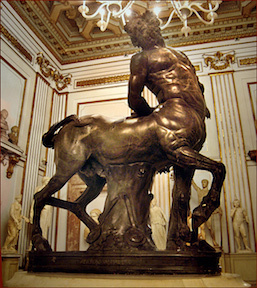On May 11, 1997, Garry Kasparov was defeated by Deep Blue. For the first time, a world chess champion was defeated by a machine. Kasparov later said that he was actually beaten by a sophisticated alarm clock, because Deep Blue used only brute force, not really intelligence, to evaluate possibilities. Nevertheless, the blow was real and Kasparov started thinking about the implications of artificial intelligence (AI); his reflection sheds light on the future of work and the strategic issues AI poses for companies.
Since Kasparov‘s defeat, computers have made huge progress and beaten the human champions of Go, a much more complex game where brute force is not effective because the number of combinations is simply too large to be calculable. Computers are now also able to drive a car. With the new methods of deep learning, computers are now able to implement intelligent reasoning mechanisms. Even if the road to a truly intelligent machine is still far off, and if engineers are sometimes a bit too optimistic (after all it’s still learning, not intelligence), artificial intelligence is becoming a reality in a growing number of domains and applications, including some we use every day (like voice control with Siri on your iPhone).

Your next competitor
Kasparov was stung, and that got him interested in computers. He has since developed a whole new branch of chess games, called hybrid tournaments. In these tournaments, rather than having humans fighting against machines, which is no longer of interest, teams of humans using computers are fighting against each other. Humans are free to use computers as they see fit. From this experience, Kasparov has learned a very interesting lesson by watching who wins these tournaments. Here is what he observes:
An average human + An average machine + A good process
is superior to
A super computer,
which is itself superior to
An expert human + A machine + A bad process.
So it’s not the super computer that wins. It is not the expert either. On the contrary, what makes the difference is the process, i.e. the way the average human with an average machine uses the latter. What makes the difference is the way to use computers, not the computer itself, however powerful.
The rise of the Centaurs
Kasparov’s analysis is important because it questions two strong beliefs. The first is the belief in the mightiness of the computer, in its ability to do everything better than us in all circumstances, and therefore the feeling that it is inevitably bound to replace humans, leading us to a future without jobs. On the contrary, there will remain for a long time areas where humans will remain better than machines, and particularly that of the invention of processes dividing up the tasks between them. The second belief is about the importance of experts. In a world where “raw” knowledge is going to be trivialized and its access made easy thanks to machines, the human expert knowing how to answer questions will be less and less necessary. For example, a computer is now producing much better diagnostics than your doctor who is increasingly overwhelmed by the amount of information available.
Kasparov concludes that the future will bring out what he calls Centaurs, after the half-man, half-horse creature of the Greek mythology. A modern Centaur is a man-machine couple built and functioning in such a way that each makes the most of their strengths. Kasparov’s result serves to remind us that technological power in itself is nothing. It is rarely those who have the best tools who win, but rather those who know best how to use them. At a time of widespread phobia about a world of machines and a growing concern about its impact on employment, the result is worth underlining.
In itself this is nothing new. Since the dawn of time, man has used technology to do more and better, but in the beginning it mainly concerned brute force. Then the invention of writing relieved the man of the need to learn by heart. With the computer, it’s going to be more and more about intelligence. Steve Jobs considered that computers are “bicycles of the mind”, that is to say they allow us to increase our possibilities, and are therefore largely complements.
It may well be, therefore, if one translates this result to the enterprise in general, that the division of labor between man and intelligent machine, and more generally the capacity to create processes effectively combining both, will become a key competitive advantage in the coming years. The world of Centaurs is coming. Are you ready?
- More





